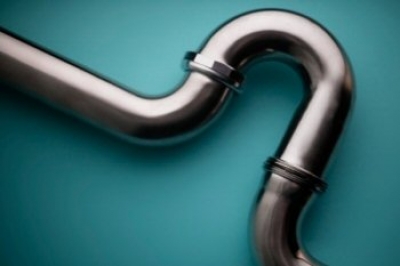This month has seen an almost continuous arctic blast causing freezing temperatures in most of the country with severe and sustained cold weather and snowfalls interspersed with periods of melting and freezing. This can inflict considerable damage on homes and businesses. One such risk is frozen water pipes.
Are you wondering just why pipes freeze and what causes them to rupture. Then, check out this article from ErieSense.com: “What Causes Frozen Water Pipes to Burst” to learn what happens to water when it freezes, why this is a threat to pipes in your home and what pipes are at the greatest risk for damage.
According to the Insurance Institute for Business and Home Safety, there are a few facts that we should keep in mind when it comes to frozen pipes.
- Frozen water pipes are one of the biggest risks for homewners when the temperature drops below 32 degrees, and approximately 37% of all frozen pipe failures occur in a basement.
- When a water pipe freezes, it could burst; and an opening of just 1/8-inch in a pipe could typically cause 250 gallons of water to escape in a day’s time.
- A water pipe that ruptures due to freezing can lead to as much as $5000 in water damage.
If the worst occurs and you have a burst pipe, the Insurance Information Institute offers this advice:
- If you discover that pipes are frozen, don’t wait for them to burst. Take measures to thaw them immediately, or call a plumber for assistance.
- If your pipes burst, first turn off the water and then mop up spills. You don’t want the water to do more damage than it already has.
- Call your agent or company as soon as you can. An insurance adjuster doesn’t need to see the spill before you take action. However, he or she will want to inspect any damaged items.
- Make temporary repairs and take other steps to protect your property from further damage. Remove any carpet or furniture that can be further damaged from seepage.
- Make a list of the damaged articles.
- Save the receipts for what you spend—including additional living expenses if you must leave your home until repairs are completed—and submit them to your insurance company for reimbursement.
Homeowners Insurance Tip
The Insurance Information Institute tells us that standard homeowners policies will usually cover most of the kinds of damage that result from a freeze. For example, if house pipes freeze and burst or if ice forms in gutters and causes water to back up under roof shingles and seep into the house. You would also typically be covered if the weight of snow or ice damages your house. They advise checking with your agent or company so you’ll be sure what your policy covers.
Here at the William M. Sparks Insurance Agency, our experienced agents welcome your questions and inquiries and are always glad to help you explore your insurance policy to be sure you have the best coverage at the best rate available. Why not contact us today or arrange for a policy review at your convenience?


 William M. Sparks 1945 - 2023
William M. Sparks 1945 - 2023



